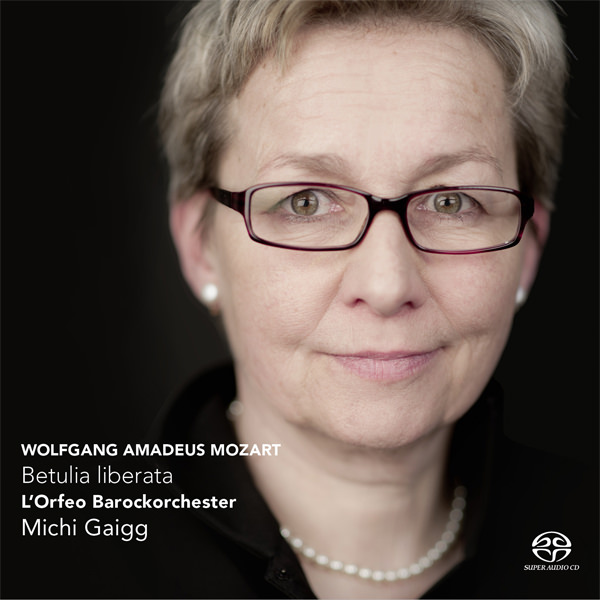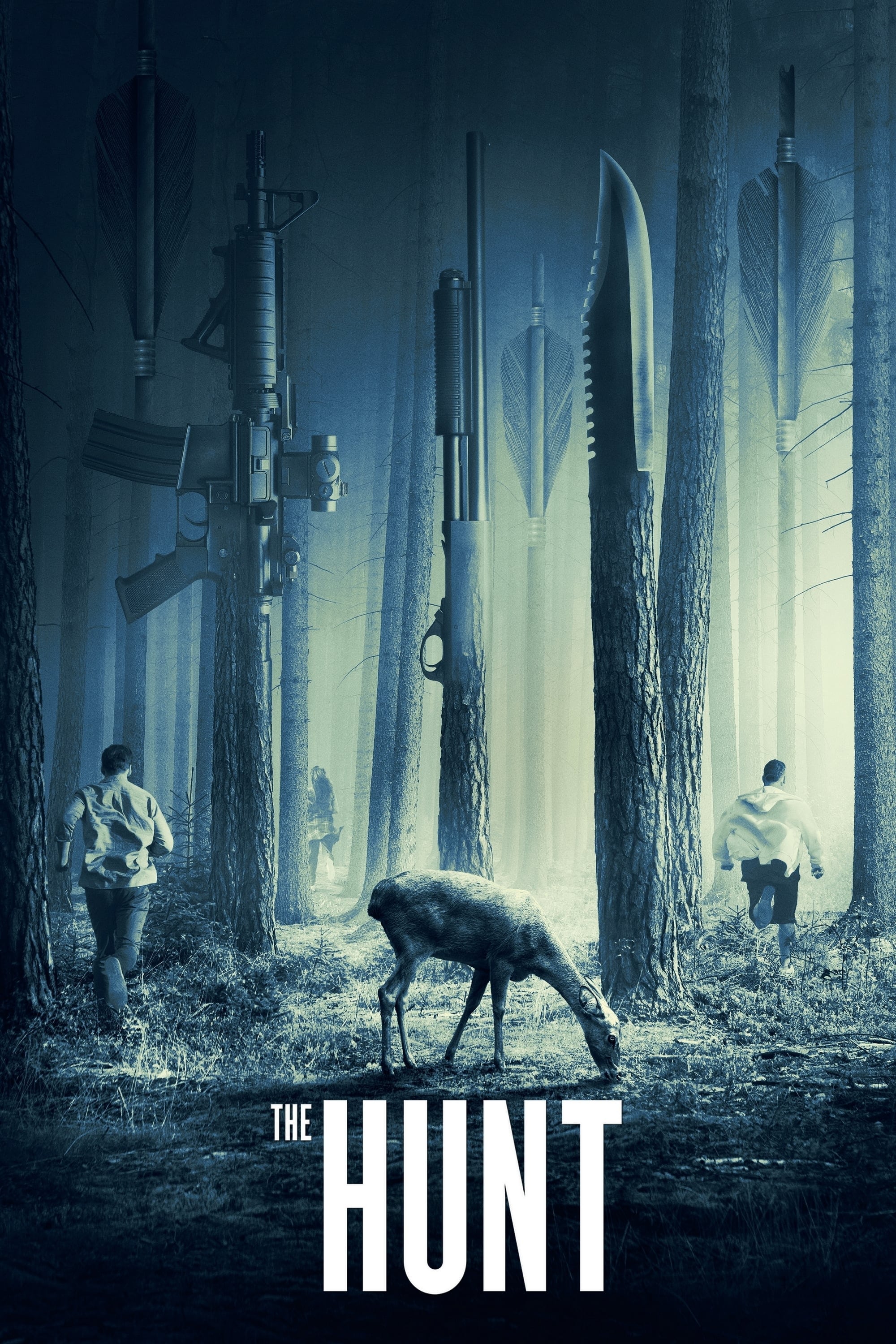
Wolfgang Amadeus Mozart – Betulia Liberata – L’Orfeo Barockorchester, Michi Gaigg (2013)
DSF 5.0 Surround DSD64/2.82MHz | Time – 02:02:49 minutes | 12,1 GB | Genre: Classical
Official Digital Download – Source: nativeDSDmusic | Booklet, Front Cover | © Challenge Records
Recorded: Stiftskirche Waldhausen (Upper Austria), 6-9 August 2012
“Betulia liberata” (The liberated Bethulia) seems to be the least known among Wolfgang Amadeus Mozart’s larger stage works, be it secular or sacred, composed during his youth. The libretto was printed twice during 1771 in Padua.
The script is based on a sacred drama, an aziona sacra, by the aged Habsburg court poet, Pietro Metastasio (1698-1782), first set to music by Georg Reutter the Younger (1708-1772) and performed during the Holy Week in 1734. Metastasio’s “Betulia liberata” is based on the story told in the Old Testament book of Judith: the Assyrians, commanded by Holofernes, tried to besiege the city of Bethulia. Even though the city of Bethulia was fictitious and the Assyrians were at the most Babylonians – the story nevertheless deals, once again, with the people of Israel and their unwavering faith in God who alone can redeem them from a hostile invasion. Achior, ruler of the Ammonites and ally to the Assyrians, dares to remind Oloferne (Holofernes) that the Bethulians were invincible as long as their faith was steadfast. This enrages Oloferne and he orders Achior to be tied to a tree near Bethulia. This is where he is found by Carmi, a Bethulian councillor, and taken hostage. In Bethulia, joined by Ozìa, ruler of Bethulia and Amital, a noble lady, he witnesses Giuditta’s (Judith’s) courage and unwavering faith. Following a divine plan she ventures to the army camp of the enemy.
Mozart’s oratorio Betulia liberata, K. 118 (he called it an “azione sacra”), is one of his least-often-performed works, and on those grounds alone this attractive performance by L’Orfeo Barockorchester and conductor Michi Gaigg is worthy of notice. Mozart composed it when he was 15 and on the road, probably for a small-scale performance in Padua, and the 27-piece orchestra used here, with natural brasses that don’t overwhelm the rest of the group, has the right dimensions. The neglect of the work is a bit odd in that much less competent pieces of Mozart juvenilia have received more attention. A certain Mozartian voice is lacking, but the work could have competed (it was apparently never performed during Mozart’s lifetime) with any number of Italian sacred pieces of the day; it resembles the sacred music of Johann Adolf Hasse, with well-shaped arias whose vocal acrobatics are toned down in respect for the sacred material. The weakness is probably the libretto, although it was set many times and remained in use into the 19th century. It is by Pietro Metastasio, the foremost operatic librettist of the middle 18th century, and it tells the story of the biblical Judith of Bethulia and her decapitation of Holofernes. Unfortunately, Metastasio, apparently motivated by academic Aristotelian considerations of dramatic unity, relegates the high points of the story, including the actual decapitation, to recitative narration. What’s left are some rather pious arias that the cast of little-known singers, led by alto Margot Oitzinger as Judith, execute very well; Oitzinger has a light voice with an unusual timbre, and it’s perfectly suited to this chamber oratorio, even if a blood-and-guts treatment rather than a chamber treatment is what the story demands. Gaigg’s brisk tempi and clear textures are also entirely appropriate for this repertory, and the performances are in general at a very high level. Recommended for deep Mozart collections and for the growing legion of devotees of the Judith story. -AllMusic Review by James Manheim
Tracklist:
Wolfgang Amadeus Mozart (1756-1791)
Betulia liberata, Azione sacra in due parti, KV 118 (74c) (1771)
Libretto: Pietro Metastasio (1698-1782)
Parte prima (Part One)
[1] Overtura 4:03
[2] Recitativo: Popoli di Betulia (Ozìa) 0:55
[3] Aria #1: D’ogni colpa la colpa maggiore (Ozìa) 6:29
[4] Recitativo: E in che sperar? (Cabri, Amital) 1:50
[5] Aria #2: Ma qual virtù non cede (Cabri) 3:03
[6] Recitativo: Già le memorie antiche (Ozìa, Cabri, Amital) 3:31
[7] Aria #3: Non hai cor (Amital) 4:14
[8] Recitativo: E qual pace sperate (Ozìa, Amital, Coro) 2:45
[9] Aria con il Coro #4: Pietà, se irato sei (Ozìa, Coro) 3:39
[10] Recitativo: Chi è costei che qual sorgente aurora (Cabri, Amital, Ozìa, Giuditta) 3:14
[11] Aria #5: Del pari infeconda (Giuditta) 4:54
[12] Recitativo: Oh saggia, oh santa (Ozìa, Cabri, Giuditta) 2:21
[13] Aria con il Coro #6: Pietà, se irato sei (Ozìa, Coro) 3:43
[14] Recitativo: Signor, Carmi a te viene (Cabri, Amital, Carmi, Ozìa, Achior) 3:16
[15] Aria #7: Terribile d’aspetto (Achior) 3:49
[16] Recitativo: Ti consola, Achior (Ozìa, Cabri, Achior, Giuditta) 3:13
[17] Aria #8: Parto inerme, e non pavento (Giuditta) 5:46
[18] Coro #9: Oh prodigio! Oh stupor! (Coro) 2:14
Parte seconda (Part Two)
[19] Recitativo: Troppo mal corrisponde (Achior, Ozìa) 5:43
[20] Aria #10: Se Dio veder tu vuoi (Ozìa) 7:16
[21] Recitativo: Confuso io son (Achior, Ozìa, Amital) 1:28
[22] Aria #11: Quel nocchier che in gran procella (Amital) 6:31
[23] Recitativo: Lungamente non dura (Ozìa, Amital, Coro, Cabri, Giuditta, Achior) 9:32
[24] Aria #12: Prigionier che fa ritorno (Giuditta) 5:41
[25] Recitativo: Giuditta, Ozìa, popoli, amici (Achior) 1:13
[26] Aria #13: Te solo adoro (Achior) 3:50
[27] Recitativo: Di tua vittoria (Ozìa, Amital) 0:50
[28] Aria #14: Con troppa rea viltà (Amital) 5:59
[29] Recitativo: Quanta cura hai di noi (Cabri, Carmi, Ozìa, Amital) 2:51
[30] Aria #15: Quei moti che senti (Carmi) 2:01
[31] Recitativo: Seguansi, o Carmi (Ozìa, Amital, Cabri, Achior, Giuditta) 0:56
[32] Aria con il Coro #16: Lodi al gran Dio (Giuditta, Coro) 5:59
Personnel:
Giuditta (alto): Margot Oitzinger
Ozìa (tenor): Christian Zenker
Achior (baritone): Markus Volpert
Amital (soprano): Marelize Gerber
Cabri (soprano): Ulrike Hofbauer
Carmi (soprano): Barbara Kraus
L’Orfeo Barockorchester
Michi Gaigg, conductor
Download:
mqs.link_MzartBetuliaLiberataLrfeBarckrchesterMichiGaigg20135.0DSD64.part01.rar
mqs.link_MzartBetuliaLiberataLrfeBarckrchesterMichiGaigg20135.0DSD64.part02.rar
mqs.link_MzartBetuliaLiberataLrfeBarckrchesterMichiGaigg20135.0DSD64.part03.rar
mqs.link_MzartBetuliaLiberataLrfeBarckrchesterMichiGaigg20135.0DSD64.part04.rar
mqs.link_MzartBetuliaLiberataLrfeBarckrchesterMichiGaigg20135.0DSD64.part05.rar
mqs.link_MzartBetuliaLiberataLrfeBarckrchesterMichiGaigg20135.0DSD64.part06.rar
mqs.link_MzartBetuliaLiberataLrfeBarckrchesterMichiGaigg20135.0DSD64.part07.rar
mqs.link_MzartBetuliaLiberataLrfeBarckrchesterMichiGaigg20135.0DSD64.part08.rar
mqs.link_MzartBetuliaLiberataLrfeBarckrchesterMichiGaigg20135.0DSD64.part09.rar
mqs.link_MzartBetuliaLiberataLrfeBarckrchesterMichiGaigg20135.0DSD64.part10.rar
mqs.link_MzartBetuliaLiberataLrfeBarckrchesterMichiGaigg20135.0DSD64.part11.rar
mqs.link_MzartBetuliaLiberataLrfeBarckrchesterMichiGaigg20135.0DSD64.part12.rar
mqs.link_MzartBetuliaLiberataLrfeBarckrchesterMichiGaigg20135.0DSD64.part13.rar










![L'Orfeo Barockorchester, Michi Gaigg - Joseph Haydn: L'incontro improvviso (2023) [FLAC 24bit/44,1kHz] L'Orfeo Barockorchester, Michi Gaigg - Joseph Haydn: L'incontro improvviso (2023) [FLAC 24bit/44,1kHz]](https://imghd.xyz/images/2023/06/19/uirqiyzk55p7b_600.jpg)
![Ensemble Correspondances & Seebastien Dauce - Charpentier: Histoires sacrees (2019) [FLAC 24bit/88,2kHz] Ensemble Correspondances & Seebastien Dauce - Charpentier: Histoires sacrees (2019) [FLAC 24bit/88,2kHz]](https://getimg.link/images/imgimgimg/uploads/2019/12/SAy0dQV.jpg)
![Philippe Jaroussky - Gluck: Orfeo ed Euridice (2018) [FLAC 24bit/96kHz] Philippe Jaroussky - Gluck: Orfeo ed Euridice (2018) [FLAC 24bit/96kHz]](https://getimg.link/images/imgimgimg/uploads/2018/10/POg4EC0.jpg)
![Philippe Jaroussky - La storia di Orfeo (2017) [FLAC 24bit/96kHz] Philippe Jaroussky - La storia di Orfeo (2017) [FLAC 24bit/96kHz]](https://getimg.link/images/imgimgimg/uploads/2018/01/KK0BKya.jpg)
![L’Arpeggiata, Christina Pluhar - Christina Pluhar: Orfeo Chaman (2016) [Qobuz FLAC 24bit/96kHz] L’Arpeggiata, Christina Pluhar - Christina Pluhar: Orfeo Chaman (2016) [Qobuz FLAC 24bit/96kHz]](https://getimg.link/images/imgimgimg/uploads/2018/11/dtyoVWH.jpg)
![Rachel Podger, Gary Cooper - Mozart: Complete Sonatas for Keyboard & Violin (2004-09) [DSF DSD64/2.82MHz] Rachel Podger, Gary Cooper - Mozart: Complete Sonatas for Keyboard & Violin (2004-09) [DSF DSD64/2.82MHz]](https://getimg.link/images/imgimgimg/uploads/2018/08/CtydJ1g.png)
![Yannick Nezet-Seguin, Miah Persson, Chamber Orchestra of Europe - Mozart: Cosi fan tutte, K588 (2013) [FLAC 24bit/96kHz] Yannick Nezet-Seguin, Miah Persson, Chamber Orchestra of Europe - Mozart: Cosi fan tutte, K588 (2013) [FLAC 24bit/96kHz]](https://getimg.link/images/imgimgimg/uploads/2018/06/AtEbnen.jpg)
![Manfred Trojahn - Orest - Netherlands Radio Philharmonic Orchestra, Marc Albrecht (2013) [nativeDSDmusic DSF 5.0 Surround DSD64/2.82MHz] Manfred Trojahn - Orest - Netherlands Radio Philharmonic Orchestra, Marc Albrecht (2013) [nativeDSDmusic DSF 5.0 Surround DSD64/2.82MHz]](https://getimg.link/images/imgimgimg/uploads/2017/09/h0HevI7.jpg)
![Alexei Utkin, Hermitage Chamber Orchestra - Mozart: Oboenspitze, Vol.2 (2008) [nativeDSDmusic DSF 5.0 Surround DSD64/2.82MHz + DSF Stereo DSD64/2.82MHz] Alexei Utkin, Hermitage Chamber Orchestra - Mozart: Oboenspitze, Vol.2 (2008) [nativeDSDmusic DSF 5.0 Surround DSD64/2.82MHz + DSF Stereo DSD64/2.82MHz]](https://getimg.link/images/imgimgimg/uploads/2018/08/dVK1OeL.jpg)
![Alexei Utkin, Hermitage Chamber Orchestra - Mozart: Oboenspitze, Vol.3 (2010) [nativeDSDmusic DSF 5.0 Surround DSD64/2.82MHz + DSF Stereo DSD64/2.82MHz] Alexei Utkin, Hermitage Chamber Orchestra - Mozart: Oboenspitze, Vol.3 (2010) [nativeDSDmusic DSF 5.0 Surround DSD64/2.82MHz + DSF Stereo DSD64/2.82MHz]](https://getimg.link/images/imgimgimg/uploads/2018/08/zY6zp9M.jpg)
![Nicolas Achten - Il Pianto d’Orfeo - The Birth of Opera (2014) [FLAC 24bit/88,2kHz] Nicolas Achten - Il Pianto d’Orfeo - The Birth of Opera (2014) [FLAC 24bit/88,2kHz]](https://getimg.link/images/imgimgimg/uploads/2017/12/gDNRdC1.jpg)
![Wolfgang Amadeus Mozart - Keyboard Music Vol. 3 - Kristian Bezuidenhout (2012) [Qobuz FLAC 24bit/88,2kHz] Wolfgang Amadeus Mozart - Keyboard Music Vol. 3 - Kristian Bezuidenhout (2012) [Qobuz FLAC 24bit/88,2kHz]](https://getimg.link/images/imgimgimg/uploads/2016/08/JBendpc.jpg)
![Rachel Podger, Jane Rogers - Mozart, Haydn: Duo Sonatas (2011) [DSF DSD64/2.82MHz] Rachel Podger, Jane Rogers - Mozart, Haydn: Duo Sonatas (2011) [DSF DSD64/2.82MHz]](https://getimg.link/images/imgimgimg/uploads/2019/01/VkhN8EH.jpg)
![Glenn Gould - The Complete Columbia Album Collection (2015 Remastered Edition) [Qobuz FLAC 24bit/44,1kHz] Glenn Gould - The Complete Columbia Album Collection (2015 Remastered Edition) [Qobuz FLAC 24bit/44,1kHz]](https://getimg.link/images/imgimgimg/uploads/2017/07/2bHwfbA.jpg)
![Pacifica Quartet - Dmitri Shostakovich and his Contemporaries: The Soviet Experience Vol. 1-4 (2011-2013) [24bit FLAC] Pacifica Quartet - Dmitri Shostakovich and his Contemporaries: The Soviet Experience Vol. 1-4 (2011-2013) [24bit FLAC]](https://getimg.link/images/imgimgimg/uploads/2017/07/ntIbtOp.jpg)